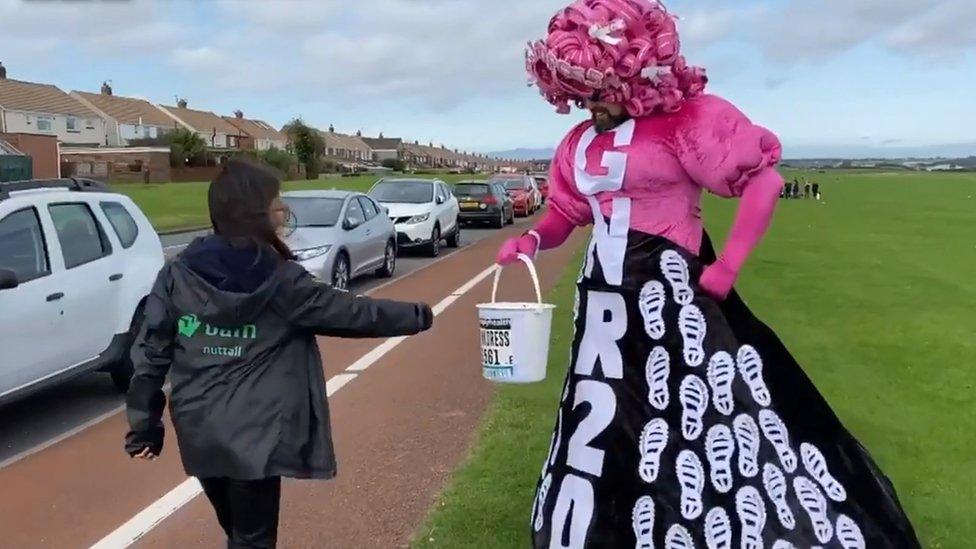Great North Run 2021 route changed over Covid concerns
- Published
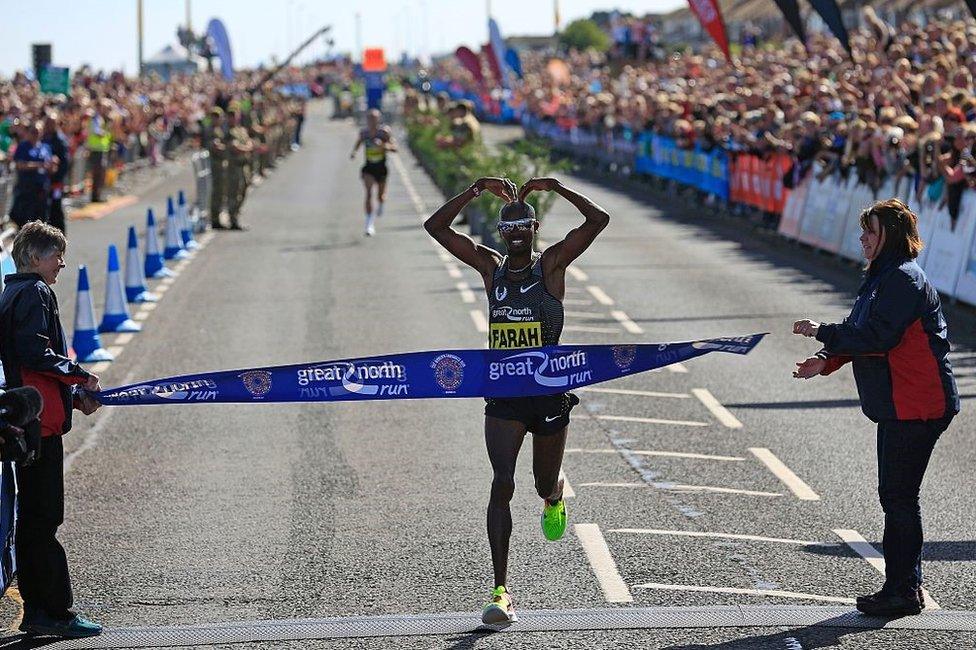
Sir Mo Farah at the finish line in South Shields when he won the men's elite race in 2016
This year's Great North Run will not finish in South Shields and runners of the half marathon will cross the Tyne Bridge twice, amid a Covid-19 shake-up.
The route on 12 September will start and end in Newcastle, as the course is changed for the first time in 40 years.
Organisers said the changes have been made to "ensure the resilience" of the event, as the UK emerges from the coronavirus pandemic.
They said they "look forward to returning" to South Shields in 2022.
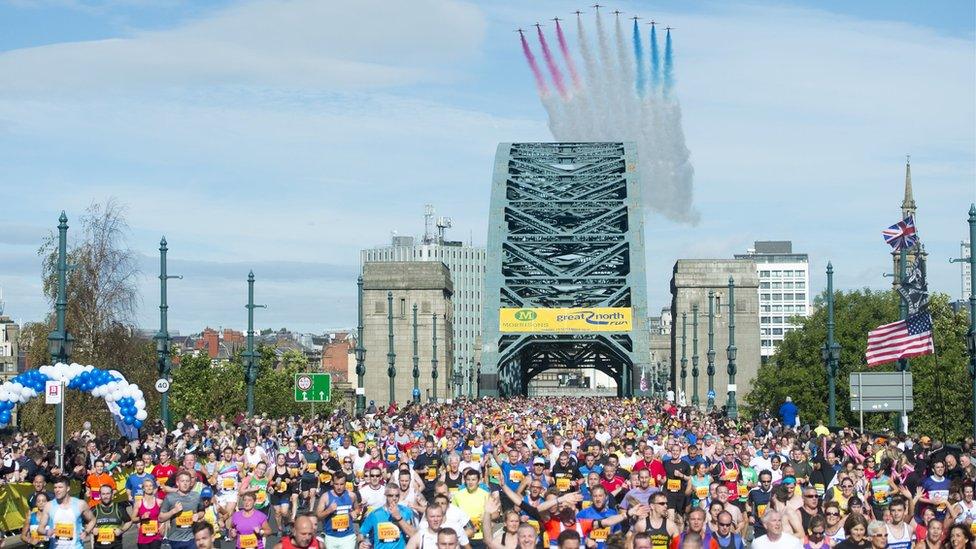
The 2021 event will see participants run over the Tyne Bridge twice and return to Newcastle, rather than end in South Shields
The 2020 event - which was due to be a 40th anniversary celebration and had attracted more than 60,000 participants - was cancelled due to the pandemic.
Instead, almost 17,000 people in 57 countries completed the 13.1m (21km) distance virtually via an app, which allowed them to raise money for charity.
In April, race founder Sir Brendan Foster voiced concerns the event was facing a "struggle" due to issues getting insurance in case it was called off, which would make organisers liable for costs.
Reacting to the changes, he said organisers could not manage with people "all over the place".
"Putting them all in one place puts us in a position where we can manage [them] safely," he said.
Staggered start times
The Great North Run Company, which organises the world's largest half marathon, said the route would take in Newcastle city centre on the return leg, before finishing on the Great North Road.
The finishers' village, which is usually constructed a short distance from the beach in South Shields, will instead be built on Town Moor.
Rather than the traditional mass start, runners will also be allocated specific timeslots, with the final participants setting off several hours after the first.
The changes have been brought in to allow for social distancing both at the event and on the transport network, organisers added.
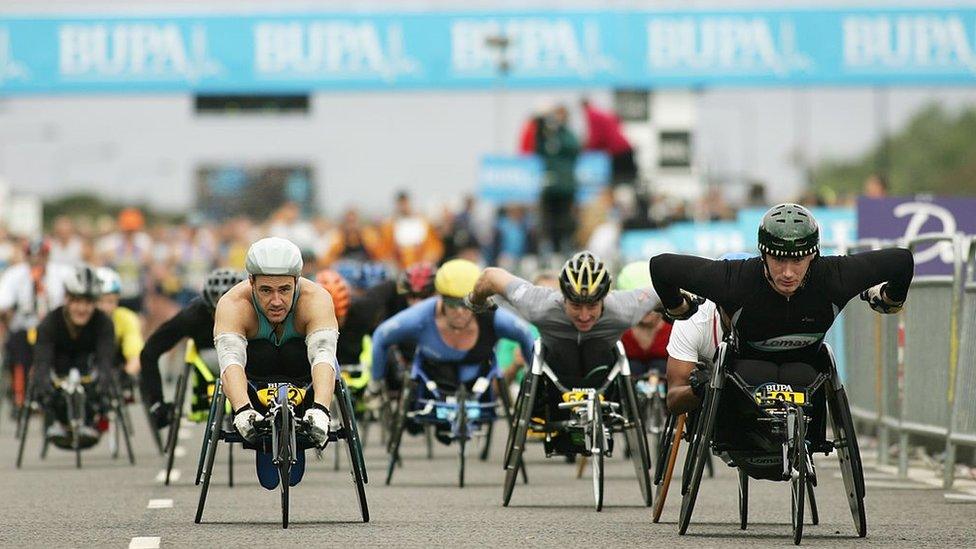
Events include a wheelchair race
Chief executive Paul Foster remains "confident" that the event can go ahead, as most Covid restrictions are due to be lifted in England from 19 July.
"We would normally welcome huge crowds at the Great North Run, but this year is a bit different, and we want to make sure that the race is staged responsibly and safely," he said.
"By changing the route and adapting the timetable we can reduce the crowds at the event and on public transport, minimising the risk of transmission of Covid."
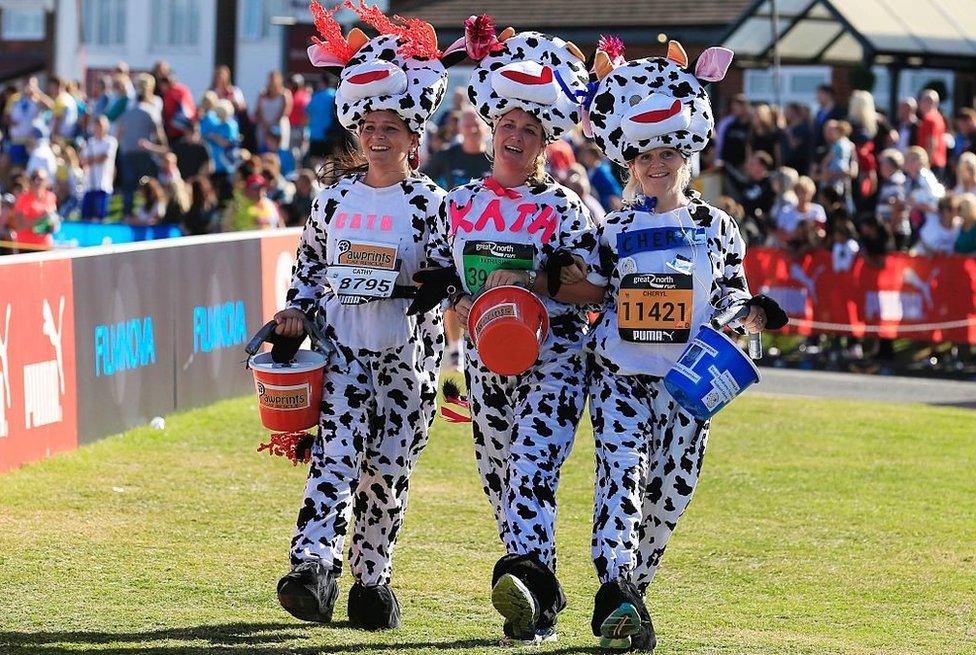
The event raises millions of pounds for charities
Organisers said they had committed to the changes and local authorities and other organisations had been consulted.
Race director Nigel Gough said: "Planning the Great North Run takes many months, and we need to commit to a plan.
"Even as most restrictions are lifted, it makes sense to plan carefully to minimise the risk of transmission and ensure that this event can go ahead."
The Great North Run 2021 will be broadcast live on the BBC.
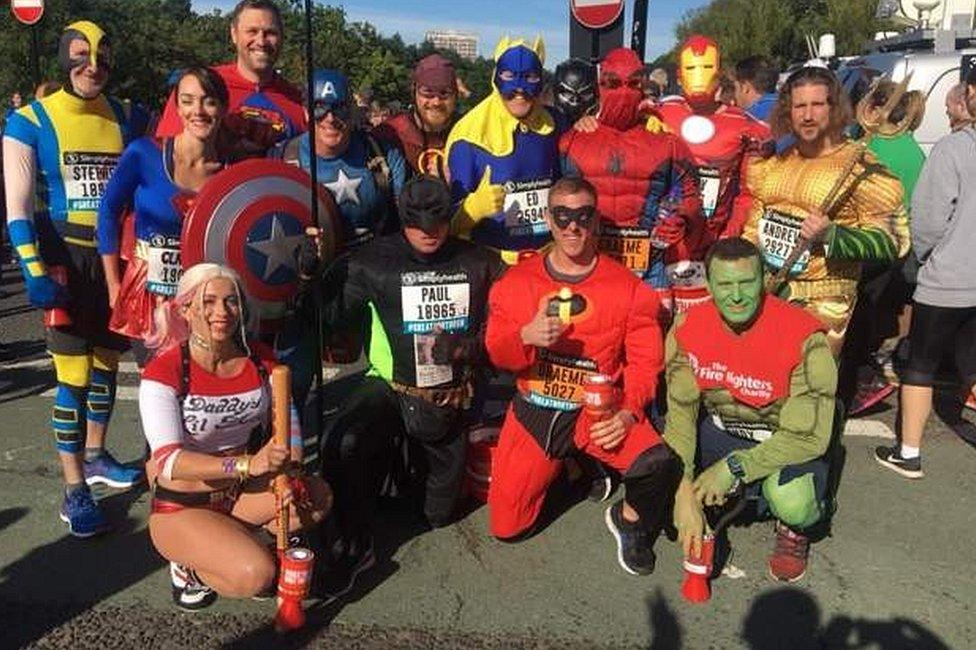
Many runners dress up for various charities, as they are cheered on by crowds

Follow BBC North East & Cumbria on Twitter, external, Facebook, external and Instagram, external. Send your story ideas to northeastandcumbria@bbc.co.uk, external.
- Published16 April 2021

- Published22 February 2021
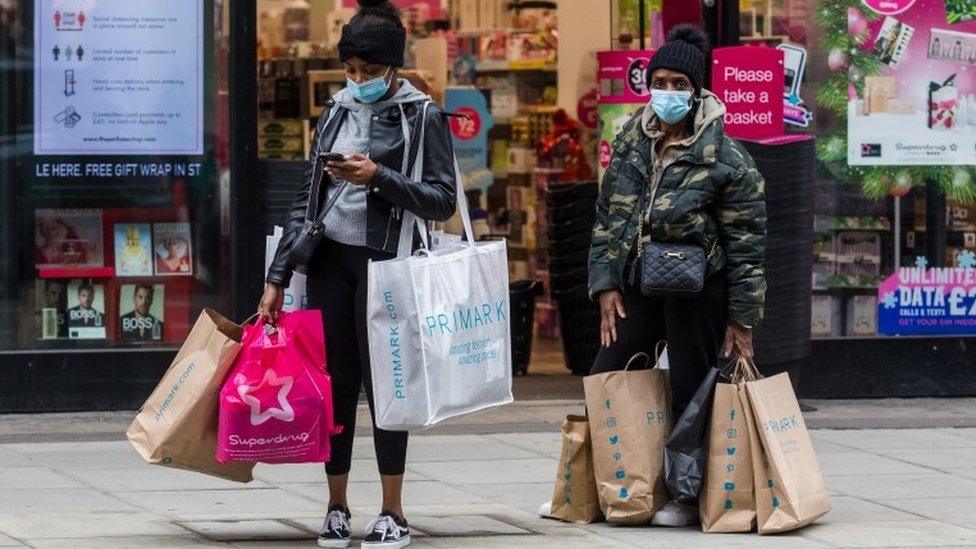
- Published27 July 2021
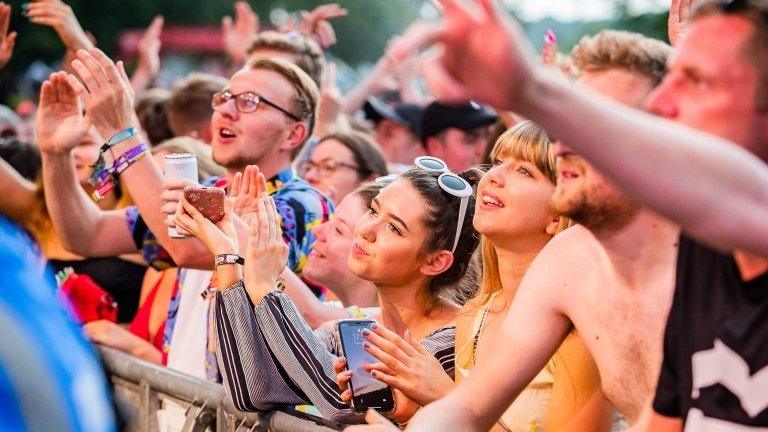
- Published13 September 2020
